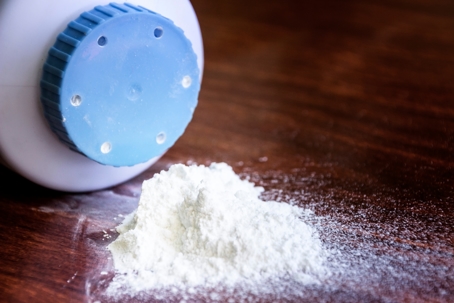Johnson & Johnson (J&J) has been under the microscope in recent years as more and more people file talcum powder lawsuits against them. According to the plaintiffs, use of the company’s baby powder products for feminine hygiene purposes – something that has been advertised as a safe use for decades by J&J – can cause the development of ovarian cancer due to trace amounts of asbestos in the talc powder.
Recently, a group of four plaintiffs won against J&J after a New Jersey jury ordered the corporate giant to pay a whopping $750 million in damages. The twist for this case is that they all claimed they were diagnosed with mesothelioma caused by their frequent use of talc powder products. Mesothelioma is a rare cancer of the lungs known to be caused by inhaling microscopic amounts of asbestos. Blame has been placed on J&J for reportedly not disclosing information about the potential dangers of talc powder use to the public, meaning they may have knowingly sold hazardous products for decades.
With J&J seemingly facing an uphill legal battle and losing multiple talc powder lawsuits so far, it seems the link between talc powder and cancer is getting stronger. But what do scientific communities have to say about it?
What Elements are in Talcum Powder?
Talc is a naturally occurring mineral comprised of silicon, magnesium, and oxygen. However, it is not uncommon for talc sources to sometimes contain asbestos, the known carcinogen. According to a Cosmetic, Toiletry, and Fragrances Association (CTFA) mandate from the 70s, any such product should not contain asbestos in amounts significant enough to show up during testing.
The testing stage is where Johnson & Johnson's baby powder products become a serious issue. Asbestos has been detected in some of their products, yet there was never an asbestos or cancer warning on the product packaging. It is not clear at this time if asbestos is only present in certain products, certain batches of products, or in all J&J baby powder products.
IARC Input
The International Agency for Research on Cancer (IARC) is the world’s most trusted name in cancer research and carcinogen identification. The American Cancer Society (ACS) actually relies on IARC data when conducting their own studies and labeling substances as cancer-causing.
According to IARC, asbestos is irrefutably a carcinogen. Since there are detectable amounts of asbestos in J&J talcum powder products, it is logical to find a connection between inhaling or using talc powder internally and cancerous growths. In fact, the string of victories against J&J in court proves that the connection is clear enough to convince judges, juries, and others involved in legal processes.
When to File a Talc Powder Lawsuit
If you have used talcum powder products throughout most of your life, or frequently during recent years, you need to pay close attention to your health. See a trusted medical provider for a checkup and speak with them about your concerns about the asbestos in the talc powder products you use if you haven’t already. They may want to order specific medical tests to look for signs of cancer growth in targeted areas. At any sign of ovarian cancer or mesothelioma, you should reach out to an attorney about how to file a claim against Johnson & Johnson.
Zambrano Law Firm is currently accepting talcum powder claims from people throughout Texas. Call 956-884-4470 for more information about our services and your options.

